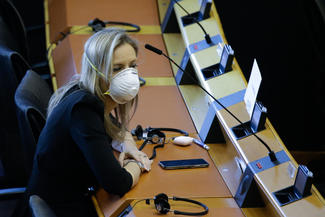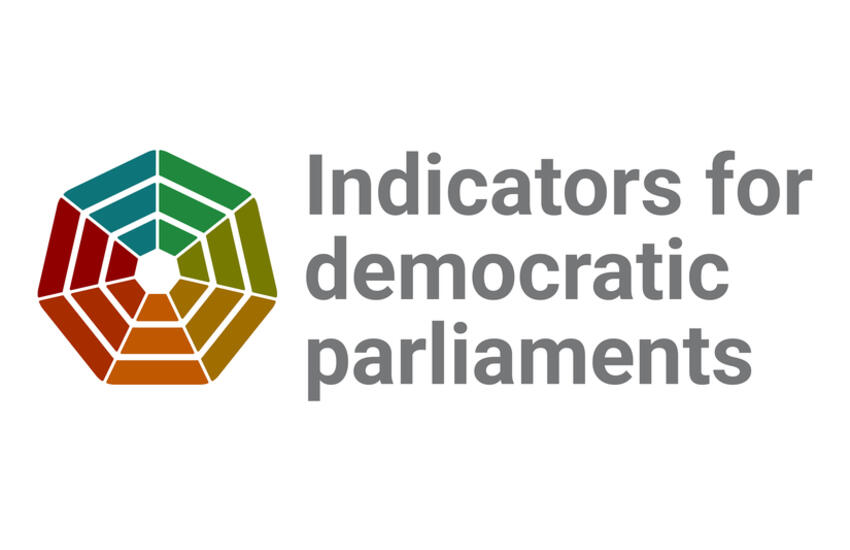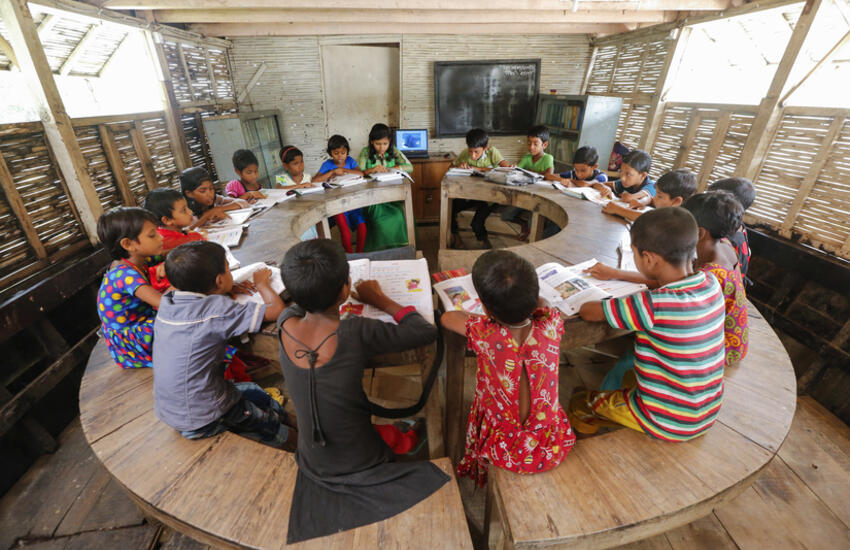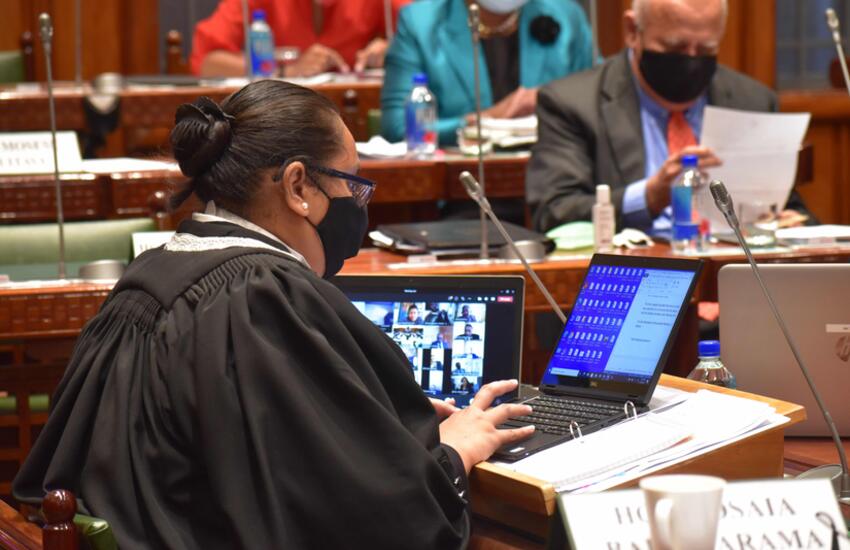 Parliaments are currently subject to the same public health and social distancing measures as schools, places of worship or businesses. Yet, in a time of crisis, the role of parliament is more vital than ever to pass emergency laws, allocate resources and scrutinize government action. So how can parliaments continue to function in a time of pandemic? This question and answer presentation explores some of the approaches being taken by IPU Member Parliaments around the world.
Parliaments are currently subject to the same public health and social distancing measures as schools, places of worship or businesses. Yet, in a time of crisis, the role of parliament is more vital than ever to pass emergency laws, allocate resources and scrutinize government action. So how can parliaments continue to function in a time of pandemic? This question and answer presentation explores some of the approaches being taken by IPU Member Parliaments around the world.
The information below has been collated by the IPU’s Centre for Innovation in Parliament based on research and data supplied by IPU Member Parliaments directly. Our objective is to help parliaments continue to function as effectively as possible during the pandemic. The IPU does not promote or endorse any brand or vendor of solution nor can we vouch for the suitability of the cited products for specific requirements.
Let us know how your parliament and parliamentarians are responding to the pandemic by writing to [email protected] or you can complete our 5-minute online survey Parliamentary working methods during the coronavirus crisis
How are parliaments continuing to meet?
We have observed three different practices around the world:
- Parliament continues to meet physically, but with restrictions. These restrictions may include: fewer sittings of plenary sessions or committees; fewer parliamentarians and staff in the building with some working remotely; changes to the venue of parliamentary meetings, for example using a bigger building that allows for more effective social distancing.
- Parliament continues to meet virtually using remote working methods. Technical infrastructure for remote meetings is widely available through commercial providers. Many parliaments are exploring options for remote working tools. This raises a number of issues, including the legal basis for remote working, security and authentication. Another factor is the capacity of parliamentary staff to put in place new solutions while being subject to social distancing measures themselves.
- Parliament does not meet. This may be the case, for example, when parliament is in recess, and so would not normally be meeting. Some parliaments, such as the United Kingdom, have taken an early recess, after voting through a number of emergency measures. Others, such as New Zealand, have changed their operating procedures so that a special committee sits, rather than the whole house. Lack of political will or technical capacity can also prevent a parliament from sitting.
What about legal and procedural issues?
Some parliaments are modifying laws and procedures to allow for remote working. For example, Spain and Brazil have amended their respective procedures to allow chambers to sit virtually. Other parliaments are relaxing their rules to allow virtual committee sittings, including Estonia, Israel and the United Kingdom.
Some parliaments are also adapting quorum rules for voting remotely or looking at how they can interpret the rules. For example, the Australian Constitution requires MPs to be “present”, which has been interpreted to mean “in person”. The Parliaments of Estonia, Finland and Norway have similar rules which may need to be revised.
What are the technical challenges that come with remote working?
Remote working in parliaments can present challenges for IT departments, which are responsible not only for maintaining operational systems but also for implementing additional technology to deal with new circumstances. Suppliers are also stretched because of increasing demand. Although many IT systems in parliament can be supported remotely, more often than not, this is designed to be the exception rather than the norm. Parliaments that are already using cloud-based tools for document production and management are at an early advantage.
What are some technical solutions that parliaments can use for remote working?
The tools below can help parliaments work more effectively.
Virtual private networks (VPN) can connect MPs and staff remotely to existing parliament intranets which are hosted on the parliament’s own infrastructure.
Cloud-based options may include solutions like Microsoft Office 365, which includes all the familiar Microsoft Office products as well as tools such as SharePoint (for collaborative document management and access) and Microsoft Teams for collaboration and videoconferencing.
The United Kingdom Parliament, the Senate of the Netherlands, the Danish Folkinget and the Norwegian Stortinget, to mention a few, use Office 365, which has made remote working easier.
Google Cloud/G-Suite includes tools such as Google Drive and Hangouts. The Parliament of Bhutan uses G-Suite.
What about tools to support virtual parliamentary meetings or sessions?
Online videoconferencing tools such as Zoom, Microsoft Teams (that works with Skype), Cisco Web Meetings and Google Hangouts are popular choices.
Any tool must offer stability, be capable of hosting a large number of participants simultaneously and provide functionality for a moderator to control them. For example, the Brazilian Chamber of Deputies recently held a virtual plenary using Zoom with over 500 members connected.
Jitsi is a free open-source videoconferencing tool for smaller groups that can be either run from the cloud or deployed on a parliament’s own server.
Parliaments who already broadcast (or webcast) their plenary or committee sessions need to ensure that any videoconferencing tools can be integrated with their existing systems.
The videoconferencing tools mentioned above come in cloud-based and on-premise versions. The former means that they are instantly deployable without significant infrastructure investment for a parliament, and at a relatively low cost. The latter requires the necessary on-premise infrastructure and therefore takes more time to implement, but may satisfy some security concerns.
What are the security concerns?
Security is obviously a critical consideration for any application chosen to support the work of parliament.
Developing internal home-grown tools are one way to mitigate security risks; however, these take time to put in place.
If using cloud solutions, parliaments need to understand where the traffic is going and where data is stored; if it is outside of a parliamentary or government cloud or outside of their jurisdiction, have all the security and legal implications been considered and mitigated?
What about security around voting remotely?
There are important security issues around voting. For example:
- How to ensure that MP votes are cast legitimately: In Brazil, MPs must have a device registered with an internal application used for voting.
- How to ensure that all members can vote: Spain has a remote voting tool which provides an asynchronous voting function.
- How to ensure that MPs have sufficient connectivity: The European Parliament’s use of email is a low-bandwidth and simple but reliable solution.
What about bandwidth requirements?
For online solutions to work, you need a fast and reliable internet connection. This will be an issue in some parliaments and for some parliamentarians, who may lack internet access or the necessary technical skills.
A secondary issue is the load on the national infrastructure and servers for cloud-based applications. We are seeing that demand for messaging and videoconferencing tools is very high and so some assurances need to be sought regarding uptime and reliability before committing to a tool.
Broadband speeds are often reported in terms of download. This is because the majority of networks are asynchronous, offering considerably lower upload speeds. Whilst this is not normally a major issue, it can be a consideration for videoconferencing and something to be aware of.
Parliaments need to consider matters of access and reliability of members’ connections when implementing remote solutions too. Where this can’t be guaranteed, it might be advisable to use asynchronous methods for document sharing and voting.
What tools can multilingual parliaments use for interpretation?
The videoconferencing tool Zoom allows for an interpretation feed, as does Cisco Web Meeting.
There are also some specialist online platforms and providers for multilingual remote interpretation, such as Interprefy, Interactio and Kudo.
Parliaments might also wish to consider providing sign-language interpretation of debates.
See also Parliaments in a time of pandemic.











